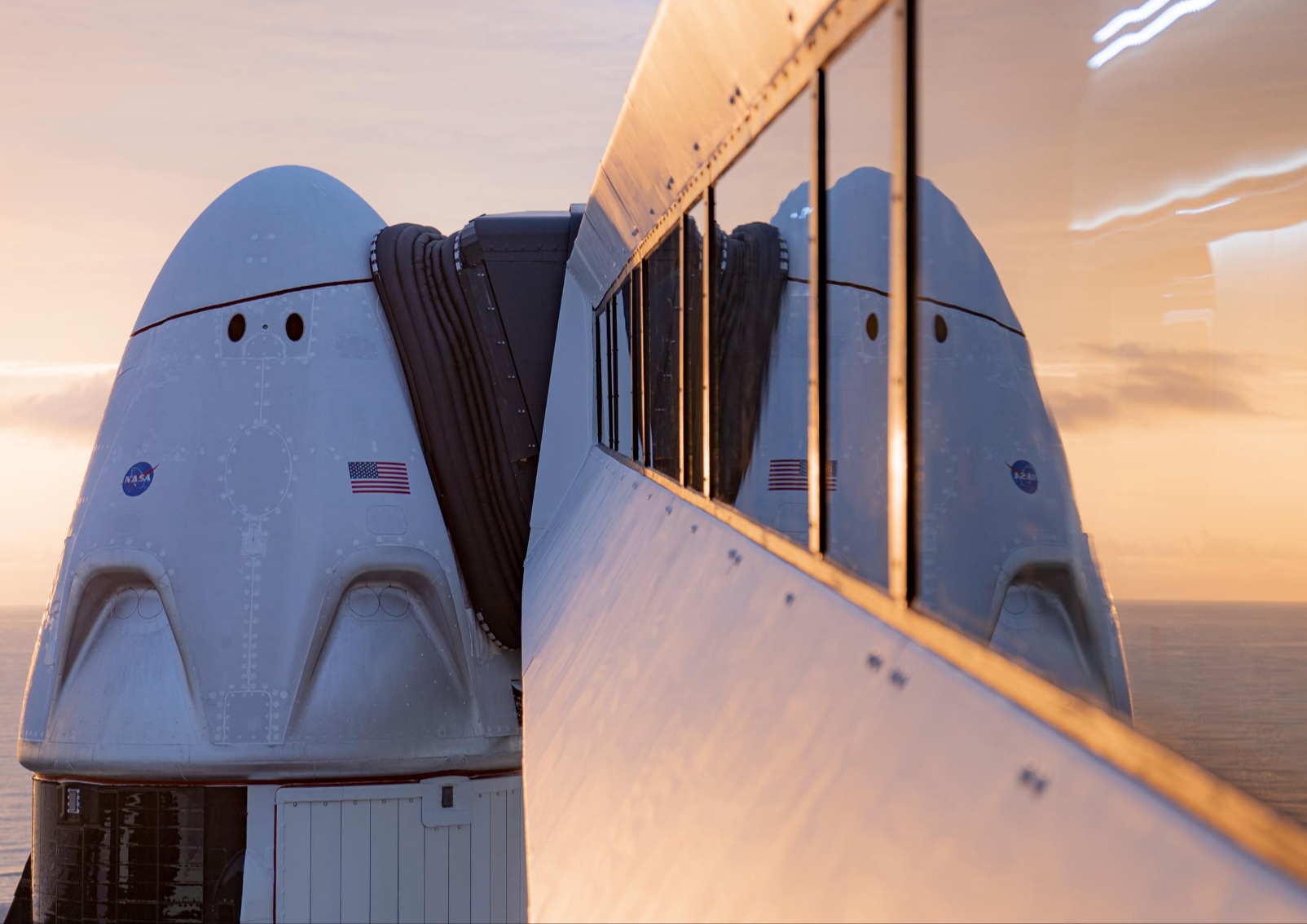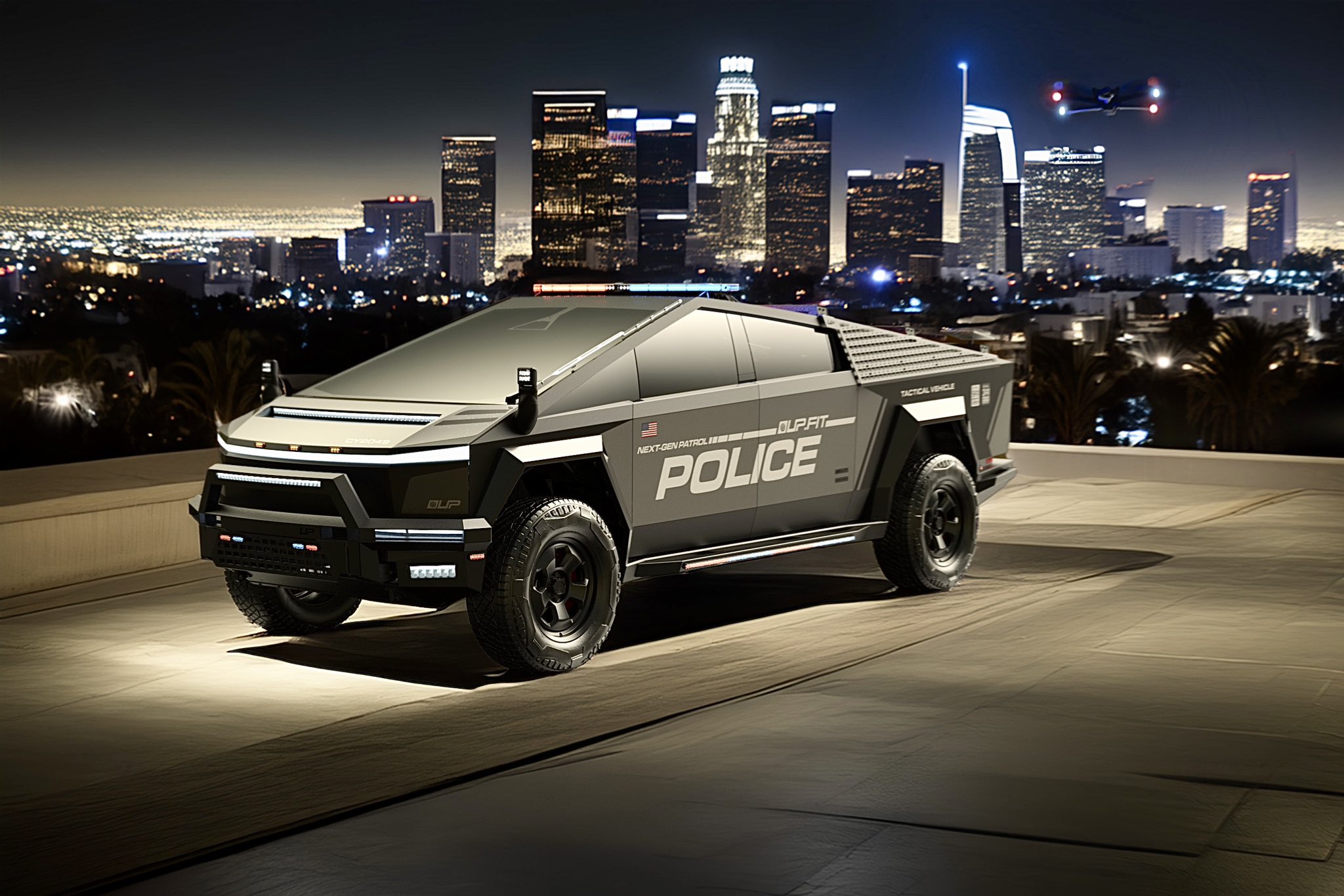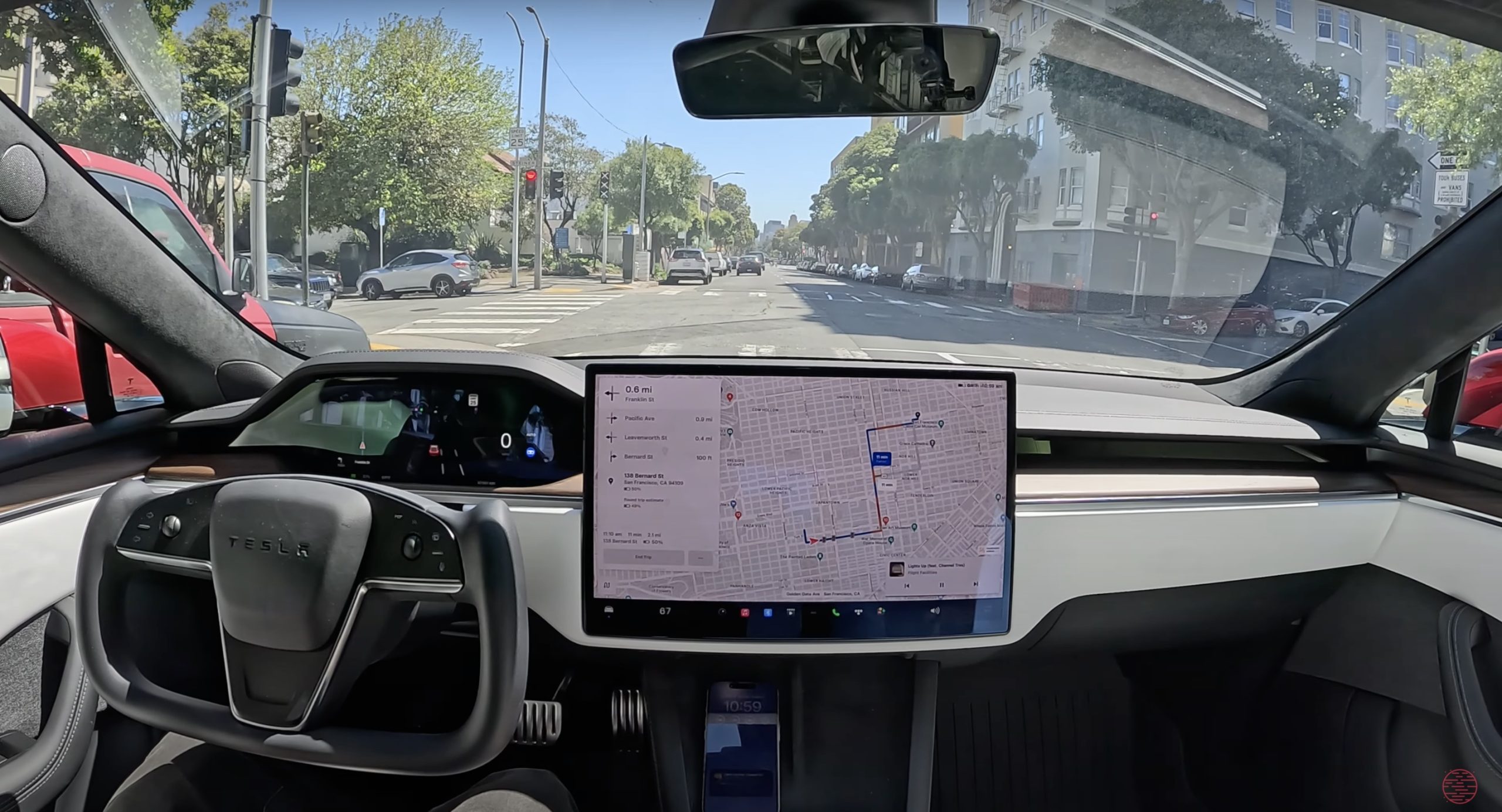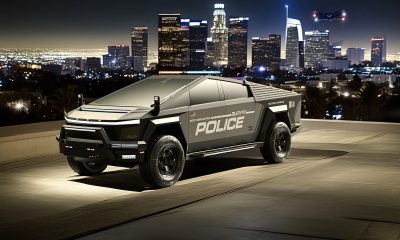A report shared over the weekend claims that the transition team for President-elect Donald Trump is looking to create a federal framework for self-driving vehicles—and to make the sector a top priority in the upcoming term.
Trump’s transition team is looking to create federal rules for the rollout of autonomous vehicles, according to people familiar with the matter in a report from Bloomberg on Sunday. The news comes as Tesla and others are developing and deploying autonomous vehicles, and as Elon Musk has officially been named a co-leader of the Department of Government Efficiency (DOGE) for the Trump administration.
The sources also said that autonomy laws would be a major priority for the U.S. Department of Transportation after past efforts to increase the number of available permits for self-driving vehicles have been thwarted. According to additional people familiar with the matter who spoke under the condition of anonymity, the Trump team is also actively looking to find policy leaders to help develop the guidelines.
Currently, the National Highway Traffic Safety Administration (NHTSA) lets manufacturers deploy as many as 2,500 self-driving vehicles per year under a granted exemption, though attempts to increase allowed units to 100,000 have been unsuccessful. Self-driving vehicles without a steering wheel or accelerator pedals—such as Tesla’s recently unveiled Cybercab—aren’t currently permitted to be deployed en masse, but many think that such a move from Trump could accelerate the deployment of the technology.
Tesla, Waymo, and others developing self-driving vehicles
Currently, Tesla owners can purchase and use the company’s Supervised Full Self-Driving (FSD) to access semi-autonomous driving, though drivers are expected to be attentive and prepared to retake control of the vehicle at any moment. Tesla also unveiled its two-seat Cybercab last month, expected to be based on FSD and to enter production in 2026.
Below you can see our first ride in the Cybercab from the We, Robot unveiling event.
🎥: Our FULL first ride in the @Tesla Cybercab pic.twitter.com/6gR7OgKRCz— TESLARATI (@Teslarati) October 11, 2024
While Tesla doesn’t currently operate a paid ride-hailing service like the Alphabet-owned Waymo, or others working toward this model, the company has teased an app based on an FSD ride-hailing service in the past. Additionally, many within the Tesla community claim that FSD will be more scalable than its competitors, due in part to its training of an AI neural network using millions of clips of real-time driving footage from FSD Supervised users.
Other companies such as Amazon-owned Zoox, General Motors-run (GM-run) Cruise, and still many others have also deployed driverless ride-hailing services to varying degrees of success. While California has been one of a few states where self-driving services have been able to start deployment in limited quantities, autonomous driving has also come under fire from regulators and authorities following a few cases of accidents and traffic violations.
Nonetheless, the development of a federal framework for autonomous vehicles could affect how this happens on a national level—and it will likely come to the benefit of Musk and Tesla, especially given the CEO’s closeness with Trump.
Tesla’s next step of dominance comes from Trump EV tax credit policy: Wedbush
Elon Musk and Trump’s Department of Government Efficiency
Musk will lead Trump’s newly created DOGE division in tandem with Vivek Ramaswamy, with the department aiming to “dismantle government bureaucracy” and cut down on government spending. The Tesla CEO initially endorsed Trump in July during his presidential campaign, later forming the political action committee (PAC) America PAC in support of the now-President-elect.
In addition to the financial support, Musk was a vocal backer of Trump’s campaign at rallies and in online media appearances, saying last month that Trump “must win to preserve the Constitution and democracy.” Many have also debated whether Trump’s removal of the federal $7,500 electric vehicle (EV) tax credit would be bad for Tesla and other EV makers, though Musk has said that it will likely only benefit Tesla.
The recent support for Trump also follows an ongoing set of feuds Musk has had with President Joe Biden during his presidency, as was sparked by Tesla not being invited to the administration’s EV summit, and by Biden claiming that GM had been the leader in EV deployment. Musk said in July that Biden is “utterly controlled” by the United Automotive Workers (UAW), following multiple criticisms of the union in the past.
What are your thoughts? Let me know at zach@teslarati.com, find me on X at @zacharyvisconti, or send us tips at tips@teslarati.com.
Former Tesla executive warns of delays to European ADAS regulations
News
SpaceX’s Crew-11 mission targets July 31 launch amid tight ISS schedule
The flight will lift off from Launch Complex 39A at Kennedy Space Center in Florida.

NASA and SpaceX are targeting July 31 for the launch of Crew-11, the next crewed mission to the International Space Station (ISS). The flight will lift off from Launch Complex 39A at Kennedy Space Center in Florida, using the Crew Dragon Endeavour and a Falcon 9 booster.
Crew Dragon Endeavour returns
Crew-11 will be the sixth flight for Endeavour, making it SpaceX’s most experienced crew vehicle to date. According to SpaceX’s director of Dragon mission management, Sarah Walker, Endeavour has already carried 18 astronauts representing eight countries since its first mission with NASA’s Bob Behnken and Doug Hurley in 2020, as noted in an MSN report.
“This Dragon spacecraft has successfully flown 18 crew members representing eight countries to space already, starting with (NASA astronauts) Bob (Behnken) and Doug (Hurley) in 2020, when it returned human spaceflight capabilities to the United States for the first time since the shuttle retired in July of 2011,” Walker said.
For this mission, Endeavour will debut SpaceX’s upgraded drogue 3.1 parachutes, designed to further enhance reentry safety. The parachutes are part of SpaceX’s ongoing improvements to its human-rated spacecraft, and Crew-11 will serve as their first operational test.
The Falcon 9 booster supporting this launch is core B1094, which has launched in two previous Starlink missions, as well as the private Ax-4 mission on June 25, as noted in a Space.com report.
The four-members of Crew-11 are NASA astronauts Zena Cardman and Mike Fincke, as well as Japan’s Kimiya Yui and Russia’s Oleg Platonov.
Tight launch timing
Crew-11 is slated to arrive at the ISS just as NASA coordinates a sequence of missions, including the departure of Crew-10 and the arrival of SpaceX’s CRS-33 mission. NASA’s Bill Spetch emphasized the need for careful planning amid limited launch resources, noting the importance of maintaining station altitude and resupply cadence.
“Providing multiple methods for us to maintain the station altitude is critically important as we continue to operate and get the most use out of our limited launch resources that we do have. We’re really looking forward to demonstrating that capability with (CRS-33) showing up after we get through the Crew-11 and Crew-10 handover,” Spetch stated.
Lifestyle
EV fans urge Tesla to acquire Unplugged Performance for edge in fleet and security industry
Unplugged Performance has built a name for itself by producing performance upgrades for Tesla vehicles.

A growing number of Tesla enthusiasts and longtime community voices are calling on the electric vehicle maker to acquire Unplugged Performance, a California-based aftermarket company best known for tuning Tesla vehicles and developing specialized government fleet solutions under its UP.FIT division.
The idea was once considered a niche proposal among EV fans, but it is now gaining serious attention not just as a performance play but as a strategic move to deepen Tesla’s roots in the fleet and security industry.
A strategic fit
Unplugged Performance has built a name for itself by producing performance upgrades for Tesla vehicles, from track-optimized components to visual and aerodynamic upgrades. But in recent years, its UP.FIT division has pivoted toward a more functional future by outfitting Tesla vehicles like Model Ys for police, military, and government use.
That work has sparked growing calls for closer collaboration with Tesla, especially as the EV maker increasingly leans into autonomy, AI, and fleet services as core components of its next chapter.
“I posted this four years ago, but I think it’s more true now than ever,” wrote Whole Mars Catalog, a well-known Tesla investor and FSD Beta tester, on X. “Tesla should buy Unplugged. But not just as a Performance division. What they are doing with UP.FIT unlocks large government and commercial fleet purchases that can improve utilization.”
Tesla fans such as shareholder Sawyer Merritt echoed the sentiment, calling Unplugged a “great fit within Tesla.” adding, “They are literally located directly next to Tesla’s design studio in Hawthorne.”
Enabling the next wave
Supporters of the idea noted that integrating Unplugged into Tesla’s corporate structure could help accelerate the adoption of autonomous technologies in government sectors. With UP.FIT patrol cars already in use across some U.S. police departments, Tesla fans envisioned a future where self-driving Teslas could potentially revolutionize law enforcement, search-and-rescue, and public service logistics.
“Just imagine how autonomous patrol cars could transform policing and bring us into a safer future,” the veteran FSD tester wrote.
The benefits could also extend to Tesla’s existing consumer base. “They also have some incredible products in the works that I think will appeal to many ordinary Tesla drivers — not just those looking for performance or mods. Stuff that’s so good it should have come straight from the design studio next door,” Whole Mars Catalog noted.
Unplugged Performance, founded in 2013, shares not just a product vision with Tesla, but also geography. Its Hawthorne headquarters sits directly adjacent to Tesla’s design studio, and the two companies have maintained a close working relationship over the years. The aftermarket firm has long positioned itself as a “mission-aligned” partner to Tesla.
In response to the recent calls for acquisition, Unplugged Performance acknowledged the support from the community. “Our very existence is to support the Tesla mission with @UpfitTesla and @UnpluggedTesla,” Unplugged CEO Ben Schaffer posted on X. “We love working with Tesla and are grateful for the community’s support since 2013!”
News
Tesla debuts hands-free Grok AI with update 2025.26: What you need to know
All new Tesla vehicles delivered on or after July 12, 2025, will include Grok AI out of the box

Tesla has begun rolling out Grok, an in-car conversational AI assistant developed by xAI, to eligible vehicles starting July 12. The feature marks the most direct integration yet between Elon Musk’s artificial intelligence startup and Tesla’s consumer product lineup, offering drivers hands-free access to a chat-style companion while on the road.
Grok comes pre-installed on new vehicles
According to Tesla’s FAQ page for the feature, all new vehicles delivered on or after July 12, 2025, will include Grok AI out of the box. Owners of older vehicles may gain access through an over-the-air update, provided their vehicle meets a few hardware and software requirements.
Specifically, Grok is currently only supported on Tesla models equipped with an AMD infotainment processor and running vehicle software version 2025.26 and higher. Compatible models include the Model S, Model 3, Model X, Model Y, and Cybertruck. A Premium Connectivity subscription or active Wi-Fi connection is also required.
Tesla notes that additional vehicle compatibility may arrive in future software updates.
Grok’s features and limitations for now
Drivers can engage with Grok using the App Launcher or by pressing and holding the voice command button on the steering wheel. Grok is designed to answer questions and hold conversations using natural language, offering responses tailored to its chosen personality—ranging from “Storyteller” to the more eccentric “Unhinged.”
For fun, Tesla posted a demonstration of Grok likely running on “Unhinged” talking about what it would do to Optimus when they are on a date, much to the shock of the humanoid robot’s official social media account.
It should be noted, however, that Grok cannot currently issue commands to the vehicle itself, at least for now. Traditional voice commands for tasks like climate control, navigation, or media remain separate from Grok as of writing.
The feature is being released in Beta and does not require a Grok account or xAI subscription to activate, although that policy may change over time.
Grok privacy and in-car experience
Tesla emphasizes that interactions with Grok are securely processed by xAI and not linked to a user’s Tesla account or vehicle. Conversations remain anonymous unless a user signs into Grok separately to sync their history across devices.
Tesla has also begun promoting Grok directly on its official vehicle webpages, showcasing the feature as part of its in-car experience, further highlighting the company’s increasing focus on AI and infotainment features on its all-electric vehicles.
-

 Elon Musk2 weeks ago
Elon Musk2 weeks agoTesla investors will be shocked by Jim Cramer’s latest assessment
-

 Elon Musk3 days ago
Elon Musk3 days agoxAI launches Grok 4 with new $300/month SuperGrok Heavy subscription
-

 Elon Musk5 days ago
Elon Musk5 days agoElon Musk confirms Grok 4 launch on July 9 with livestream event
-

 News1 week ago
News1 week agoTesla Model 3 ranks as the safest new car in Europe for 2025, per Euro NCAP tests
-

 Elon Musk1 week ago
Elon Musk1 week agoxAI’s Memphis data center receives air permit despite community criticism
-

 News2 weeks ago
News2 weeks agoXiaomi CEO congratulates Tesla on first FSD delivery: “We have to continue learning!”
-

 Elon Musk2 weeks ago
Elon Musk2 weeks agoTesla scrambles after Musk sidekick exit, CEO takes over sales
-

 News2 weeks ago
News2 weeks agoTesla sees explosive sales growth in UK, Spain, and Netherlands in June


















